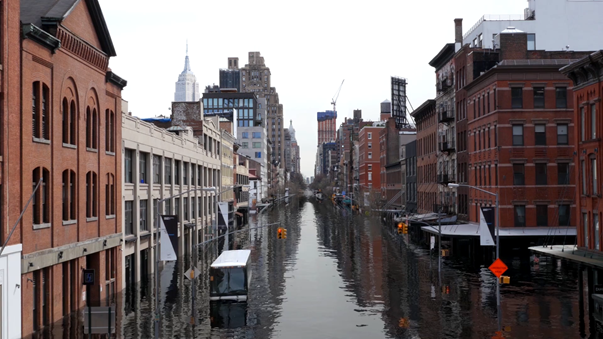Master in City & Technology Second Year 2020/22 – Term II
Seminar Name: The Role of the Citizens
Total Hours: 12 hours
Faculty: Dr. Kathrin DiPaola, Julius Streifeneder

Syllabus
A smart city can only truly become smart when its citizens participate in the transformation. Its success is defined by the acceptance of and co-creation by its citizens since the core objective of the smart city is to ultimately serve its people. Re-assuming the role of cities as primarily human habitats that find a new balance between social impact and profit driven mechanisms is becoming ever more important as nation states seem less and less able to act. The 17 UN sustainable development goals set the agenda, the dynamic of the COP26 climate pact and global efforts to contain the Covid pandemic create the momentum for change that is driven by the necessity to make an impact on climate, public health and social justice – While at the same time still guaranteeing a level of choice instead of only restrictions.
However, the majority of innovations and technologies needed for operational improvement and qualitative growth in cities come from private corporations that are focused on profitable products and solutions. But, what would an impact driven approach to urbanizing technologies (or “smartifying” cities) look like? Could there be true public-private urban co-labs? What kind of services truly render a city a “City-as-a-Service?” Is on-demand consumerism compatible with achieving collective goals?
Thus, creating and improving a smart city calls for a new way of relating to each other and working together – a so-called “do-ocracy”, where choice, sustainability, health care, environmental and city friendly infrastructures and services play a fundamental role in the democratic decision-making process.
Learning Objectives
The aim of this three-day course is to discuss the shifting relationship between citizens, city and corporations under the influence and emergence of new technologies, services, social practices and political mechanisms in the context of each master thesis. The students will engage in a critical discourse and design sprint that helps them to step back and (re)-assess their thesis work already produced to develop their conceptual ideas further.
Faculty

Dr. Kathrin DiPaola looks back at an impressive record of academic and industry endeavors and has worked for stellar institutions and companies in Europe and the U.S. She received a PhD from the University of Maryland and a Master’s Degree from Arizona State University. Until 2010, she held appointments as Assistant Professor and was the youngest and first female Director of Deutsches Haus at New York University. In 2012, she left academia to pursue a career in mobility consulting, where she was responsible for the intersection between products/technologies in social and cultural processes. Clients included OEMs, city governments, suppliers, urban planners, and more.
In October 2018, she joined Business Sweden, the Swedish Trade and Invest Council, and took on an assignment as Senior Investment Advisor, helping German companies in different sectors to grow and partner with the Swedish innovation ecosystem. Until February 2021, Dr. DiPaola held the position of Managing Director Germany for the Swedish tech scale-up TechBuddy, with market presence in Sweden, Spain, Israel and Germany. Since March 2021, she is back in New York, where she heads all programs for the German Center for Research and Innovation.

Julius Streifeneder is an expert in the field of urban mobility and sustainable architecture with 8 years of experience in strategy and design consulting and 12 years of planning expertise. He works with corporations, OEMs, municipalities and urban planners on strategy, concept design, economic and regulatory feasibility to the design of operator and business models in the growing field of urban mobility and prop-tech. Over the years his approach shifted from building design to designing towards achieving operational goals within the built environment. As an architect, he has worked for Foster and Partners, Make Architects and Studio Fuksas and was part of the design and execution of large scale office, retail and education projects in Europe and the US. He holds a specialized postgraduate degree with a focus on energy efficient design, innovative building services and technology integration. As an expert on integrated, human-centered systemic design he is regularly involved in teaching activities and as guest speaker at symposia.
